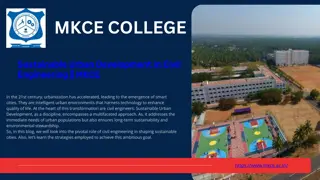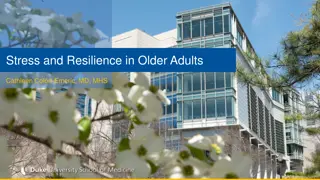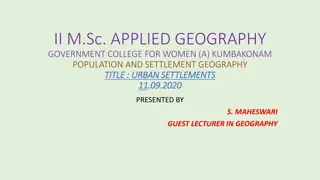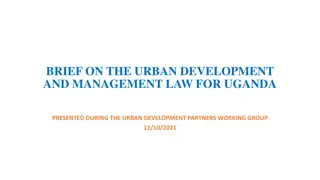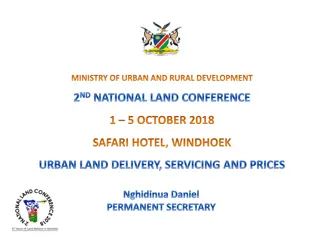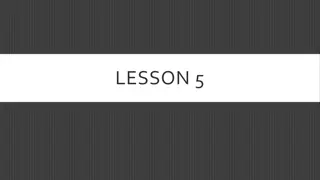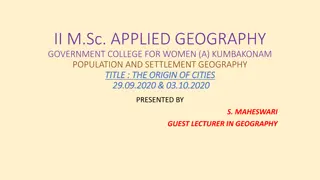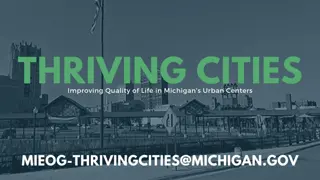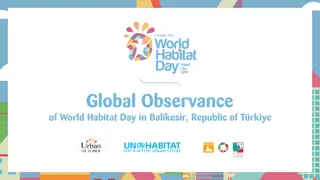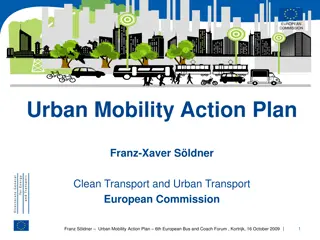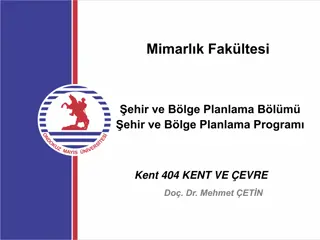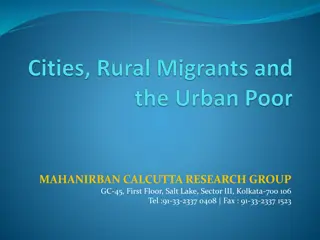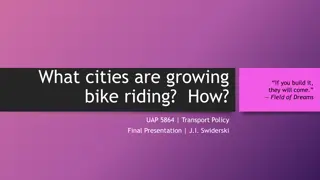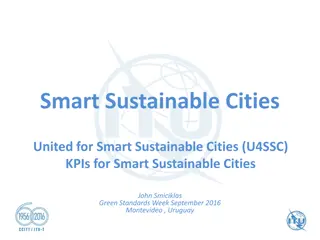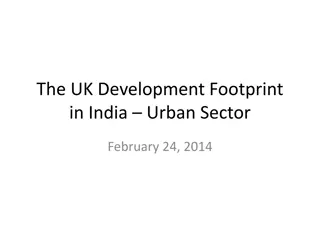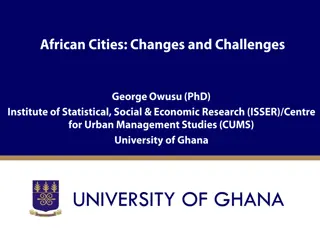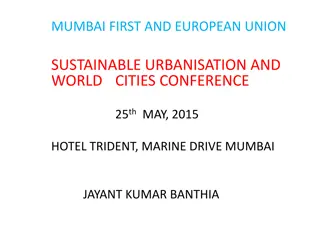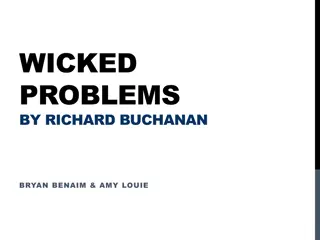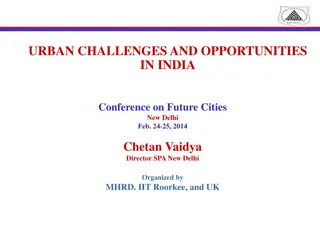Understanding Urban Resilience and Addressing Wicked Problems in Cities
Urban areas face increasing threats due to disasters and complex interdependencies, leading to wicked problems. Collaborative efforts are crucial to build resilience and mitigate risks effectively.
Uploaded on Oct 09, 2024 | 0 Views
Download Presentation

Please find below an Image/Link to download the presentation.
The content on the website is provided AS IS for your information and personal use only. It may not be sold, licensed, or shared on other websites without obtaining consent from the author. Download presentation by click this link. If you encounter any issues during the download, it is possible that the publisher has removed the file from their server.
E N D
Presentation Transcript
Building Urban Resilience Ken MacClune Senior Staff Scientist Institute for Social and Environmental Transition (ISET)
ISET Institute for Social and Environmental Transition International International Non-Profit with offices in three countries Boulder Colorado, Delhi and Hanoi Sister ISETs ISET-Nepal (Kathmandu) ISET-Pakistan (Islamabad)
Vision (in the making) Collaborate for the Innovative Change Needed to Transform Development Practice Toward a Sustainable and Just Future ISET-International will Act, Learn and Connect People Globally to Change Development Practice through Equal Partnership (Coalitions), Innovation and Shared Learning.
Why Cities Urban disasters pose increasing threat to highly concentrated, and often poor, residents. Urban areas house most productive economic investment, Thus disasters can be extremely costly and cause widespread disruption to national and regional economies (e.g. Bangkok flood 2011).
Complexity Urban systems are complex and interdependent actions can have unexpected ripple effects, often far beyond what was intended. As cities expand, risks can increase unexpectedly. But urban disaster risks can be reduced through better understanding and collaboration between different organizations.
The Challenge: Complexity leads to Wicked Problems Disaster risk and climate change are wicked problems (a social messes ) How to address this wicked problem
Nice Problems 1+2=3 Building an airplane Complicated but not complex
Wicked Problems Russell L. Ackoff complex problems as messes: Every problem interacts with other problems and is therefore part of a set of interrelated problems, a system of problems Robert Horn: a Social Mess is a set of interrelated problems and other messes. Complexity systems of systems is among the factors that makes Social Messes so resistant to analysis and, more importantly, to resolution.
Addressing Complexity Disaster Risk reduction in urban areas requires broad interaction with a wide range of local actors, including multiple government departments, social organizations / civil society, community groups and businesses.
Addressing Complexity: Challenges Collaboration between different organizations can be difficult. Most organizations do not have a specific mandate for collaboration, they focus exclusively on their own narrow interests. Often helpful to make the collaboration and coordination mandate explicit e.g. Climate Change Coordination Offices (CCCOs) in 3 cities in Vietnam.
Addressing Complexity: Solutions Collaboration requires additional skills (beyond technical knowledge) communications, networking, information exchange and finding opportunities for mutual benefit. Need to be able to provide support to other organizations who may get more credit and recognition.
Can Require Different Tools http://www.ted.com/talks/ken_robinson_changing_education_paradi gms https://www.ted.com/talks/jill_bolte_taylor_s_powerful_stroke_of_insi ght
Tools to Address Issue Shared Learning Dialogues Shared Vision Planning Futuring
Example Asian Cities Climate Change Resilience Network ACCCRN Rockefeller Foundation Mekong Building Climate Resilient Asian Cities M-BRACE USAID-RDMA
Kenneth MacClune ken@i-s-e-t.org www.i-s-e-t.org
ISET Vietnam is working at multiple levels, with local communities, local and provincial governments, national government and with civil society organizations such as the Red Cross to learn from past disasters and improve practices to reduce urban risks. Learning and diagnostic tools: research, vulnerability assessment, PERC, SLDs Planning tools: Climate action plans, urban development plans Collaboration tools: SLDs, CCCO, training and capacity building
Gorakhpur UP India Rapid Urbanization Flooding Health
Mahewa Project: main outcomes Experimentation and learning-by-doing: Residents of Mahewa ward have developed their own decentralized waste management and drainage systems. Interventions have reduced waterlogging and sanitation problems in the absence of effective state support, and have become a sustained practice in the ward. Deliberation, public dialogues, advocacy: A ward-level Citizens Committee successfully lobbied the City Government to provide roads and storm water drainage.
The Climate Resilience Framework in Practice Mahewa Ward - Gorakhpur Social Capital
Da Nang, Vietnam Rapid Urbanization Vulnerable Housing Need for Typhoon Safety
Kenneth MacClune ken@i-s-e-t.org www.i-s-e-t.org



